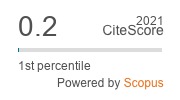Based on Queueing Theory Modelling of Taxi Drivers' Decisions at Swami Vivekananda Airport in Raipur, Chhattisgarh, India (RPR)
DOI:
https://doi.org/10.17762/msea.v72i1.1615Abstract
Abstract
At airports, taxis are an essential mode of ground transportation. After dropping off customers, taxi drivers have two options: wait to pick up passengers at the airport or abandon the airport and look for work elsewhere. Not only will understanding how cab drivers make judgments benefit them, but it will also benefit passengers. Furthermore, measures might be implemented to balance the supply and demand of taxis at airports. Based on queueing theory, an model was built to analyses taxi drivers' decision-making mechanisms. A superior approach might be chosen by evaluating the net income of these two options over the same time period. A case study was undertaken at Swami Vivekananda Airport in Raipur, Chhattisgarh, India, to validate the model (RPR). Drivers' decisions in different time periods could be predicted using the model. The results acquired by the model were found to be congruent with real-world scenarios after assessing the model results. Furthermore, it was observed that the number of flights taking off and arriving in a given period had a significant impact on taxi drivers' selections.




